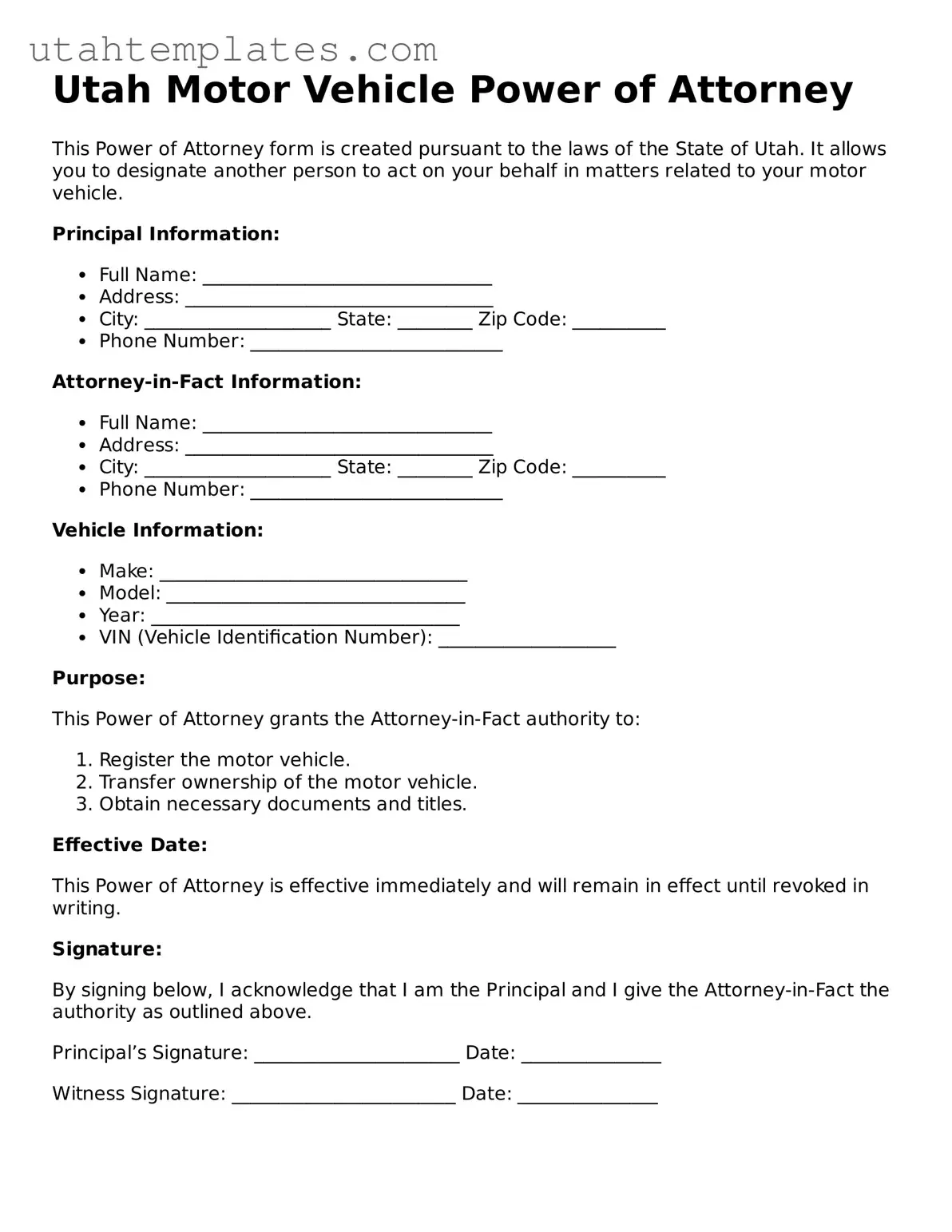Free Motor Vehicle Power of Attorney Form for Utah
The Utah Motor Vehicle Power of Attorney form is a legal document that allows an individual to designate another person to act on their behalf regarding motor vehicle transactions. This form can facilitate various activities, such as registering a vehicle, transferring ownership, or obtaining title documents. By granting this authority, the principal ensures that their interests are represented effectively and efficiently in matters related to motor vehicles.
Launch Motor Vehicle Power of Attorney Editor Here

Free Motor Vehicle Power of Attorney Form for Utah
Launch Motor Vehicle Power of Attorney Editor Here
Need to check this off quickly?
Fill out Motor Vehicle Power of Attorney online without dealing with paper.
Launch Motor Vehicle Power of Attorney Editor Here
or
Free PDF File
